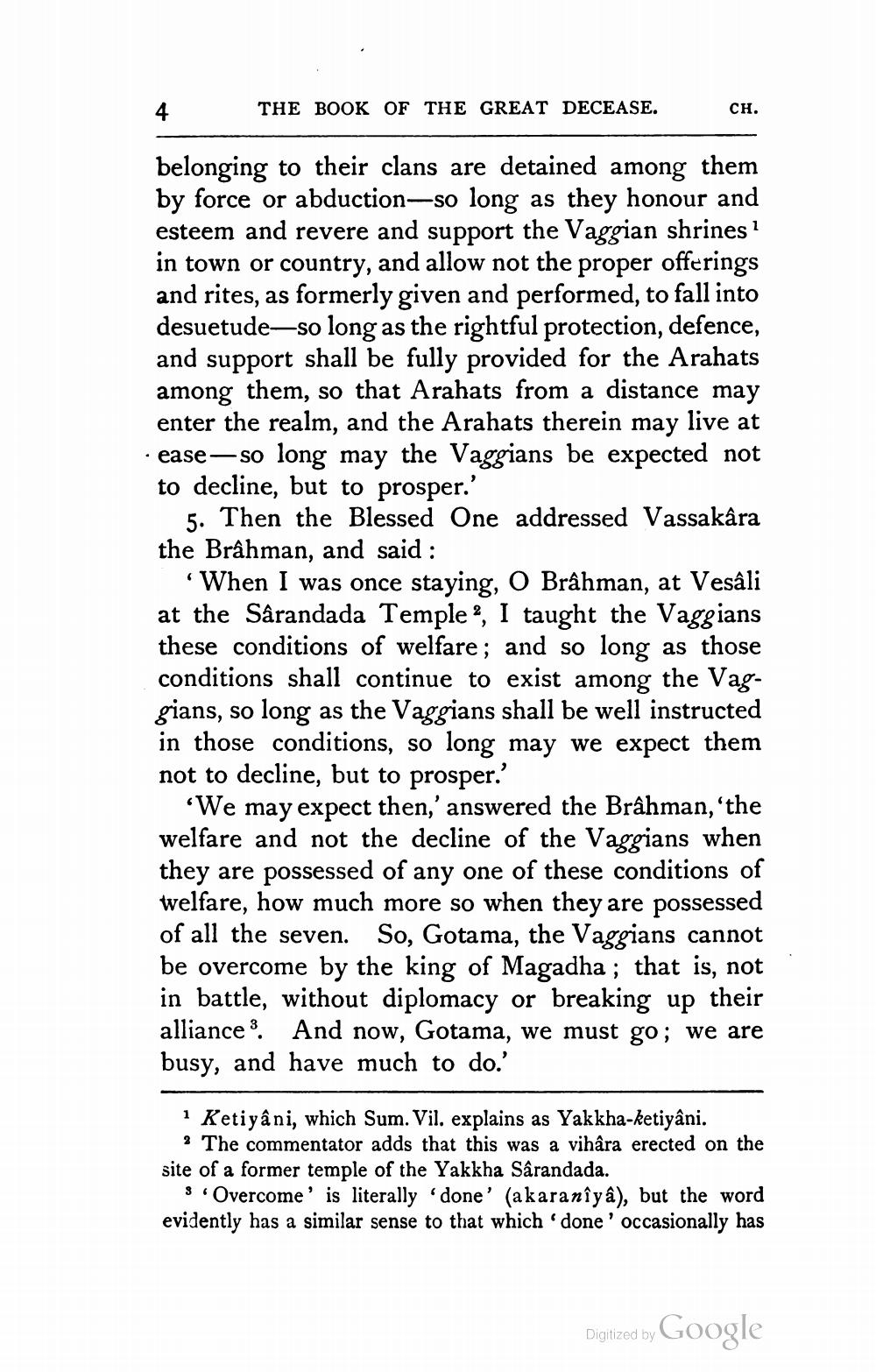________________
4
THE BOOK OF THE GREAT DECEASE.
CH.
belonging to their clans are detained among them by force or abduction—so long as they honour and esteem and revere and support the Vaggian shrines? in town or country, and allow not the proper offerings and rites, as formerly given and performed, to fall into desuetude—so long as the rightful protection, defence, and support shall be fully provided for the Arahats among them, so that Arahats from a distance may enter the realm, and the Arahats therein may live at · ease—so long may the Vaggians be expected not to decline, but to prosper.'
5. Then the Blessed One addressed Vassakâra the Brâhman, and said:
When I was once staying, O Brâhman, at Vesali at the Sarandada Temple ?, I taught the Vaggians these conditions of welfare; and so long as those conditions shall continue to exist among the Vaggians, so long as the Vaggians shall be well instructed in those conditions, so long may we expect them not to decline, but to prosper.'
'We may expect then,' answered the Brâhman, 'the welfare and not the decline of the Vaggians when they are possessed of any one of these conditions of welfare, how much more so when they are possessed of all the seven. So, Gotama, the Vaggians cannot be overcome by the king of Magadha ; that is, not in battle, without diplomacy or breaking up their alliance :. And now, Gotama, we must go; we are busy, and have much to do.'
1 Ketiyâni, which Sum. Vil. explains as Yakkha-ketiyâni.
The commentator adds that this was a vihara erected on the site of a former temple of the Yakkha Sarandada.
s.Overcome' is literally done' (akaranîya), but the word evidently has a similar sense to that which 'done' occasionally has
Digitized by
Digitized by Google




